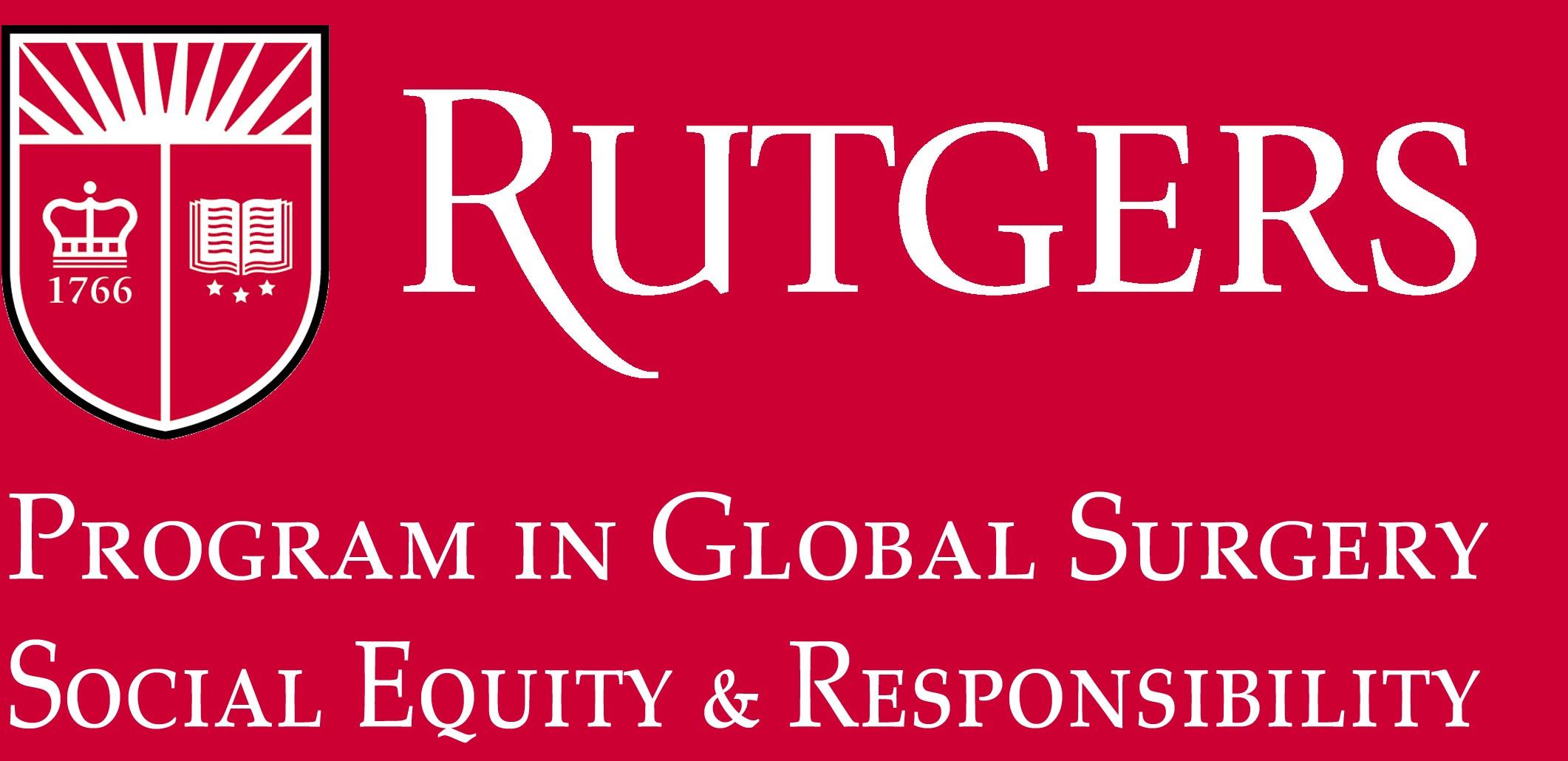Rutgers Global Surgery Fellowship In Social Equity and Responsibility
Program Goals
- Define, develop, and support the fellow’s health systems research interest in global surgery
- Develop research methodology and skills to achieve success with research goals
- Evaluate and contribute health systems research with emphasis on vulnerable populations
- Disseminate research through scholarly journals and conferences
- Develop relationships with international, multisectoral leaders and collaborators in global surgery
- Improve understanding of global health and global surgery issues based on the formal education
- Mentor learners in global surgery and facilitate access to mentorship in policy, public health, disparities research, health services, economics, and dissemination and implementation science.
Mentored Activities to Achieve Goals
The Fellowship involves two years, and includes obtaining a self-funded Master’s in Public Health (MPH) in the Rutgers School of Public Health. The second year includes a culminating experience in an international setting as well as ongoing self-directed learning through continued literature review and mentorship fostered through a global surgery practicum. Progress is objectively measured throughout the fellowship using pre-defined curriculum milestones.
Fellows are afforded an opportunity to achieve the Program Goals through the following activities:
- Master’s in Public Health
- Through the Rutgers School of Public Health, the fellow will have the opportunity to pursue an MPH (ex. Epidemiology, Global Health, or Health Systems and Policy).
- Although not mandatory, the MPH is highly encouraged. A single year certificate program is available for candidates with prior research experience.
- The application process is separate, and the degree is self-funded.
- Through the Rutgers School of Public Health, the fellow will have the opportunity to pursue an MPH (ex. Epidemiology, Global Health, or Health Systems and Policy).
- Self-directed Education
- Framework set by completing reading of recommended articles and participation in recommended webinars and lectures and/or conferences in addition to self-directed learning
- Participate actively in biweekly Rutgers Global Surgery meetings
- Organize and present the Rutgers Global Surgery education seminar
- Research
- Investigate facilitators and barriers to health care delivery and health systems research in limited-resource settings
- Disseminate and implement research frameworks, tools and methods to bolster healthcare systems capacity building
- Complete (at least one) research project that will be submitted/presented at a conference and encouraged to be used for the final MPH Practicum project
- Attend global health-oriented conference for education and networking once annually (to be funded by the Fellowship Program)
- Leadership
- Mentor and educate medical students, graduate students, undergraduate students and all other interested learners in global surgery systems, advocacy, policy, and research methods and implementation
- As a second-year fellow, mentor the first-year RGS fellow in research methods and program stewardship (i.e., build the team)
- With international colleagues, develop, implement, and evaluate all aspects of achieving UHC through ensuring equitable and safe access to essential and emergency surgical care
- International travel
- The fellow is expected to travel a minimum of once per year (preferably twice) to support research initiatives with international partners and network with international experts and champions of global surgery (one trip to be funded by the Fellowship Program)
- Senior Faculty Based Mentorship
- Mandatory bimonthly meetings with faculty advisor to guide and monitor Fellow’s progress
- Mandatory bimonthly meetings between senior fellow and junior fellow’s research team
